
– Dr Louisa Barré, CEA, University of Caen, France
Rational development for a PET radiopharmaceutical probe
– Dr Tatiana Besset, University of Rouen, France
Combining organofluorine chemistry and C-H activation: New tools to fluorinated molecules
– Prof. Maria Laura Bolognesi, University of Bologna, Italy
Can theranostic small molecule combat neurodegenerative diseases?
– Prof. Pascal Bonnet, University of Orléans, France
In silico Fragment-Based Design of Kinase inhibitors
– Dr Thomas Cailly, University of Caen, France
Radio-iodination using a C-H activation approach
– Prof. Raphaël Frédérick, University of Louvain, Belgium
Disrupting the metabolic adaptation of cancer cells with small molecules as a promising anticancer strategy
– Dr Corinne Fruit, University of Rouen, France
Late-stage C-H arylation of thiazolo[5,4-f]quinazolin-9(8H)-one backbone: Synthesis of an array of potential kinase inhibitors
– Prof. A. Ganesan, University of East Anglia, Norwich, United Kingdom
Targeting epigenetic erasers for drug discovery
– Dr Cédric Logé, University of Nantes, France
New azole antifungals with fused pyrimidinone and triazinone derivatives
– Dr Shailesh Mistry, University of Nottingham, United Kingdom
Molecular interrogation of multiple signalling states of the Beta-1 adrenoceptor
– Dr Niamh O’Boyle, University of Dublin, Ireland
New anti-cancer small molecules
– Prof. Maria-João R. P. Queiroz, University of Minho, Portugal
Synthesis of new di(hetero)arylamines derivatives of thieno[3,2-b]pyridines and evaluation of their neuroprotective activity on transgenic Caenorhabditis elegans -for Machado Joseph disease- as a model of study and toxicity
– Prof. Anne-Sophie Voisin-Chiret, University of Caen, France
Pyridoclax and its derivatives directly inhibit Mcl-1 and exert potent antitumor effects on ovarian cancers in vitro and in vivo
– Prof. Johan Van der Eycken, Ghent University, Belgium
Total synthesis and biological evaluation of Pelofen, a simplified analogue of Peloruside A with microtubule-stabilizing activity
CVs in brief…
| Dr Louisa Barré CEA, University of Caen, France |
Head of the research team « Développements Méthodologiques en Tomographie par Emission de Positons » located at Caen on the imaging platform Cyceron. She has an expertise in – Radiochemistry using short-lived radionuclide (carbon-11, fluor-18, gallium-68) for PET imaging- innovative approaches – The development and evaluation in vivo of PET radiopharmaceuticals for diagnosis. She is involved in the “think tank” in the future of radiopharmaceutical compounds held under the auspices of “Health-related Technologies” piloted by Aviesan and France Life Imaging and in the “Club des radiopharmaceutiques. Its research is mainly focused on PET radiopharmaceutical for oncology. |
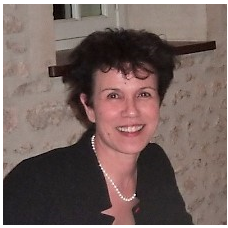 |
|
| Dr Tatiana Besset University of Rouen, France |
Dr Tatiana Besset obtained, in 2009, her PhD thesis in organic chemistry in the group of Dr A. E. Greene (University of Grenoble, France). After a first postdoctoral fellow in the group of Prof. F. Glorius (WWU Münster, Germany) and a second one in the group of Prof. J. N. H. Reek (University of Amsterdam, Netherlands), she is working, since 2012, as a CNRS Associate Researcher in the “Fluorinated Biomolecules Synthesis” team (headed by Prof. X. Pannecoucke, UMR 6014, Rouen, France). Her research focuses on the transition metal-catalyzed C–H activation and the development of new strategies for the synthesis of fluorinated building blocks. |
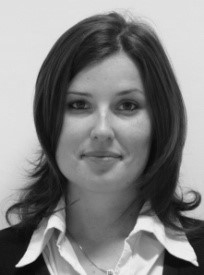 |
|
| Prof. Maria Laura Bolognesi University of Bologna, Italy |
Maria Laura Bolognesi is Professor of Medicinal Chemistry at the University of Bologna and an Associate Editor of Journal of Medicinal Chemistry. Her research interest are in the field of the design, synthesis, and pharmacological investigation of small molecules for neurodegenerative and neglected tropical diseases. She has a track record of 150 publications in high-ranked scientific journals, including patents and patent applications, and more than 60 invited talks worldwide. She was awarded a Distinguished Visiting Professor Fellowship at the Complutense University of Madrid in 2009 and a PVE Fellowship at the University of Brasilia (2014-2017). |
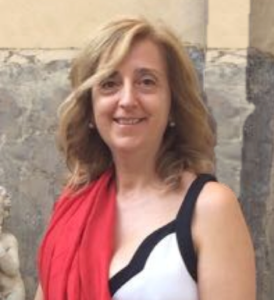 |
|
| Prof. Pascal Bonnet University of Orléans, France |
In 2012, Pascal Bonnet joined the Institute of Organic and Analytical Chemistry (ICOA) from the University of Orléans as full professor. Since then, he is leading the group of Structural Bioinformatics and Chemoinformatics, which develops and integrates novel computational methods for drug discovery. His research interests also focus on the development of an integrative in silico platform for kinase research. Since 2016, he is director of the ICOA. After completing his PhD in 2001 at the University of Orléans (France) and the University of Barcelona (Spain), he moved to a postdoctoral position at the University of Manchester, UK. As a scientist, he joined Janssen-Cilag in France and then Janssen-Pharmaceutica in Belgium in 2003. He was involved in several drug discovery projects mainly in the oncology therapeutic area. Promoted Principal Scientist in 2010, he was leading the Kinase Platform at Janssen. He contributed to the design of a clinical drug candidate, erdafitinib, a kinase inhibitor discovered by FBDD currently in Phase II clinical trials. |
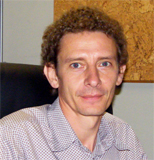 |
|
| Dr Thomas Cailly University of Caen, France |
Dr Thomas Cailly obtained is PhD from the University of Caen (2006) under the supervision of Pr. S. Rault. In 2006, he was appointed teaching and research assistant at the University of Caen and in 2007 research engineer. In 2008, he joined the group of Pr. M. Begtrup at the University of Copenhagen as a post-doctoral fellow. In 2009, he was appointed maître de conférences in bio-inorganic chemistry at the University of Caen and in 2014 joined the group of Pr. V. Gouverneur in Oxford for one year as a visiting scientist. His current research interests in the Centre d’Etudes et de Recherche sur le Médicament de Normandie (CERMN) include: medicinal chemistry applied to diagnostic tools, radio-iodination methodologies and C-H activation processes. |
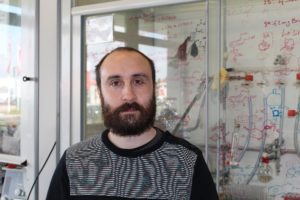 |
|
| Prof. Raphaël Frédérick University of Louvain, Belgium |
Professor of Medicinal Chemistry, Louvain Drug Research Institute (LDRI), Medicinal Chemistry Research group, Université Catholique de Louvain (UCL), Bruxelles, Belgium 2015 – Louvain Drug Research Institute (UCL) – Vice-President Main interests: medicinal chemistry in the broad sense, with a particular emphasis on rational computer-aided drug design and fragment-based drug discovery approaches. Targets mainly related to the field of anticancer immunotherapy and cancer metabolism |
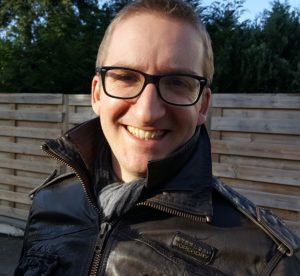 |
|
| Dr Corinne Fruit University of Rouen, France |
Corinne Fruit received her Ph.D. degree from the University of Rouen in 2001. She undertook postdoctoral studies at the University of Ottawa with Pr Alex Fallis, working on the synthesis of new heteroarenes as kinase inhibitors, following by 2 years at the University of Geneva with Pr Paul Müller, dealing with rhodium catalyzed asymmetric transfer of nitrenes. In 2005, She joined the COBRA laboratory in Rouen as “Maître de Conférences”. Her current research area focuses on the development of new strategies for incorporating structural diversity into complex nitrogen containing heterocycles as valuable scaffolds for kinase inhibition. |
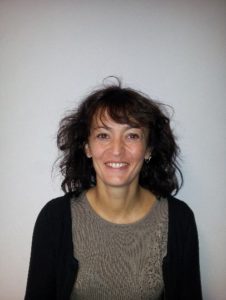 |
|
| Prof. A. Ganesan University of East Anglia, Norwich, United Kingdom |
B.Sc. in Chemistry and Microbiology, National University of Singapore. Ph.D. in Chemistry, University of California-Berkeley. Postdoc in Chemistry, Harvard University. Academic positions at the Institute of Molecular and Cell Biology, Singapore and the University of Southampton, UK before present position at UEA. Interests in chemical biology and medicinal chemistry, particularly epigenetics and natural products. Chair of the EU network COST Action Epigenetic Chemical Biology. Co-founder of the drug discovery company Karus Therapeutics. |
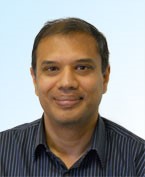 |
|
| Dr Cédric Logé University of Nantes, France |
Dr Cédric Logé is in charge of molecular modeling in the Department of Medicinal Chemistry of IICIMED-EA1155 (Nantes). He studied Organic Chemistry at the University of Lille 1 and did a PhD in Medicinal Chemistry at the University of Lille 2 under the supervision of Prof. Daniel Lesieur. After a postdoctoral fellow in molecular modeling with Prof. Philippe Chavatte, he joined the Faculty of Pharmacy of Nantes as an assistant professor in the Group of Pr. Robert, then Pr. Le Pape (IICIMED EA1155). His current research focus is in the area of invasive fungal infections with the goal of designing novel antifungal agents aided by molecular modeling tools. |
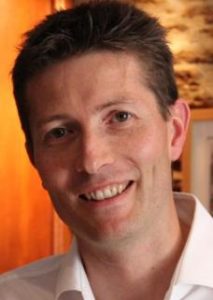 |
|
| Dr Shailesh Mistry University of Nottingham, United Kingdom |
Dr Shailesh Mistry obtained his MPharm (Hons) degree (2003) and PhD (2009) from the School of Pharmacy, University of Nottingham. His PhD work (with Prof. Barrie Kellam/Prof. Steve Hill) focused on the development of highly selective ligands for the Beta-1 adrenoceptor and formed the basis of a Wellcome Trust Seeding Drug Discovery project, on which he completed his first postdoctoral position, and which culminated in the development of highly selective pre-clinical candidate compounds. Subsequently, he undertook a senior postdoctoral position in the group of Prof. Peter Scammells at the Monash Institute of Pharmaceutical Sciences (Melbourne, Australia), with a primary focus on the development of small molecule allosteric modulators for a range of G Protein-Coupled Receptors (GPCRs). In 2014 he returned to Nottingham as an Assistant Professor in Medicinal Chemistry. Current research interests continue to focus on the medicinal chemistry and chemical biology of ligands targeting GPCRs |
 |
|
| Dr Niamh O’Boyle University of Dublin, Ireland |
Dr. Niamh O’Boyle received her BSc(Pharm) and PhD degree from Trinity College Dublin, and subsequently was awarded a postdoctoral scholarship at University of Göteborg in Sweden to investigate the allergenic activity of epoxides and epoxy resins. Subsequently, she was awarded a Government of Ireland Postdoctoral Research Fellowship at the School of Biochemistry & Immunology, TCD, working on ‘Cancer, Tubulin and Free Radicals: New Therapy’. Following a period as assistant lecturer at the School of Chemical and Pharmaceutical Sciences at Dublin Institute of Technology, she was appointed as assistant professor at the School of Pharmacy & Pharmaceutical Sciences at Trinity College Dublin in 2017. Her research interests lie in the areas of improving patient outcomes by applying the principles of medicinal chemistry. |
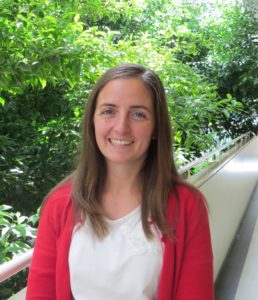 |
|
| Prof. Maria-João R. P. Queiroz University of Minho, Portugal |
Maria‐João Queiroz first graduated in Pharmaceutical Sciences in the Univ. of Porto‐Portugal (1986) followed by a PhD in Organic Chemistry (1993) in the Univ. of Minho‐ Portugal and carried out postdoctoral studies in heterocyclic chemistry in the Univ. of Metz‐France (1994). She is Coordinator Researcher since June 2009 in the Department/Centre of Chemistry of the Univ. of Minho and has a wide range of research interests in heterocyclic and medicinal chemistry |
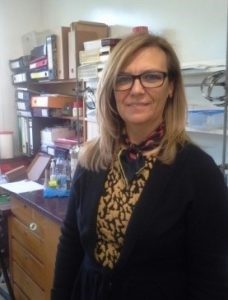 |
|
| Prof. Anne-Sophie Voisin-Chiret University of Caen, France |
Pharm.D. (2002); Ph.D. Caen (2005), University of Caen Normandie (France). Lecturer in Medicinal Chemistry (2007) in the School of Pharmacy at the University of Caen. Since September 2015, she has assumed the position of Prof. of Medicinal Chemistry. Her research interests include medicinal chemistry in the field of protein-protein interactions, in order to design oligo(het)aromatic foldamers that mimic the ability of proteins to fold into well-defined conformations, such as helices and β-sheets. Since 2012 she has been leading a research program dedicated to the development of foldamers of interest in the treatment of ovarian cancers and neurodegenerative diseases. |
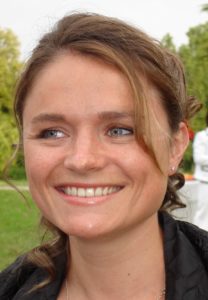 |
|
| Prof. Johan Van der Eycken Ghent University, Belgium |
Johan Van der Eycken (PhD from Ghent University [1986]; postdoctoral stay at Bergische Universität, Wuppertal, Germany [1986]) is Professor in Organic Chemistry and Head of the Laboratory for Organic and Bioorganic Synthesis (LOBOS) at Ghent Universtity (UGent), Belgium. His main research topics are design of novel chiral ligands for asymmetric transition metal catalysis, total synthesis of complex biologically active compounds (e.g. Lipid II analogues, macrocyclic antibiotics, e.g. Peloruside A), and solid phase synthesis of peptidomimetics and small organic molecules as privileged scaffolds for drug discovery. |
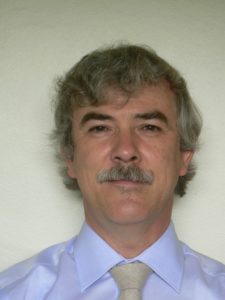 |